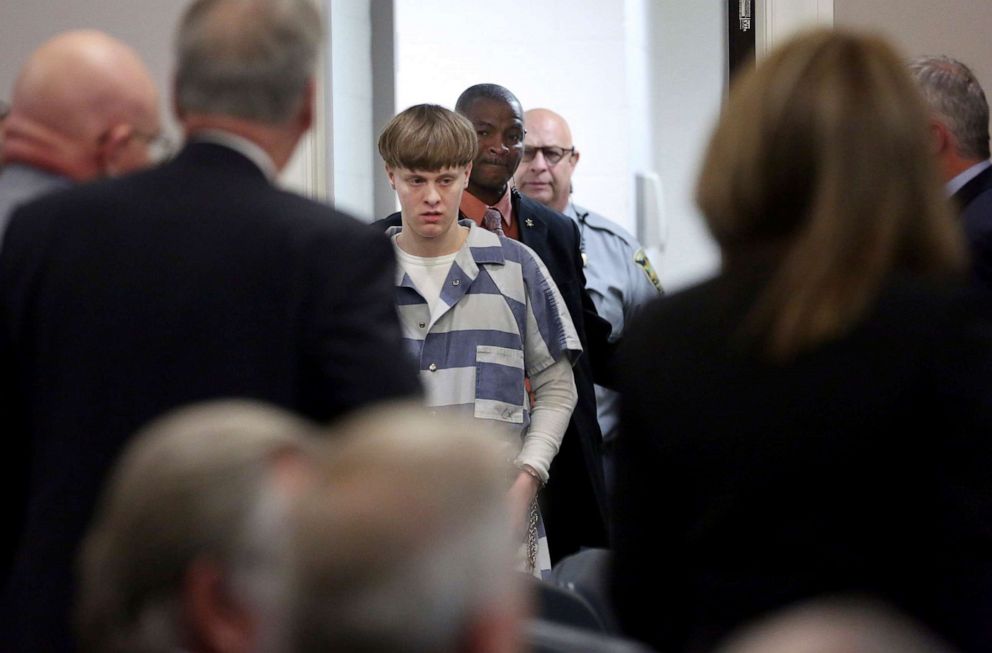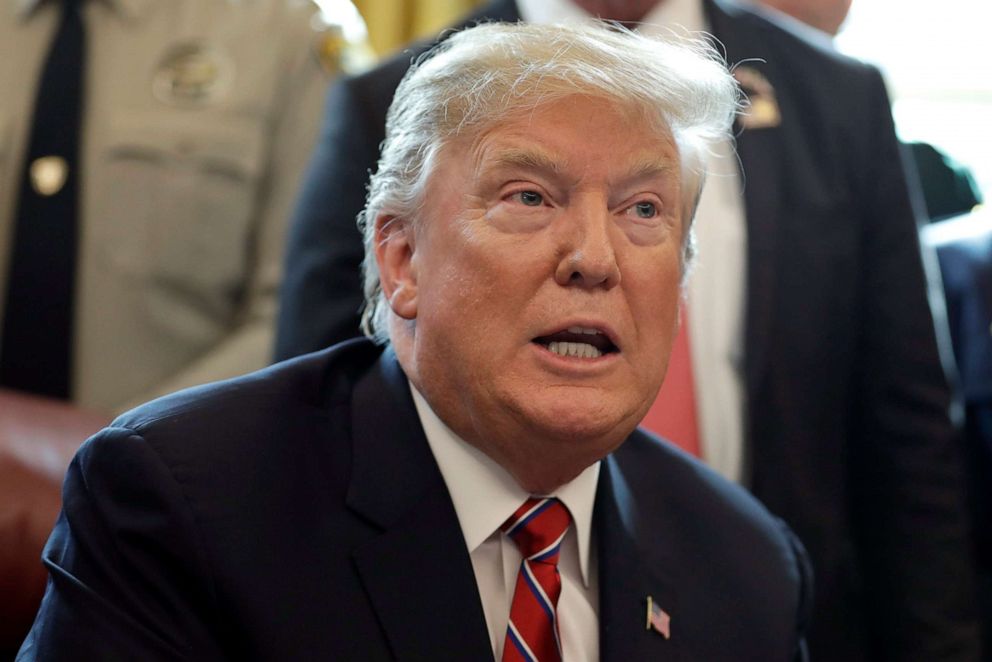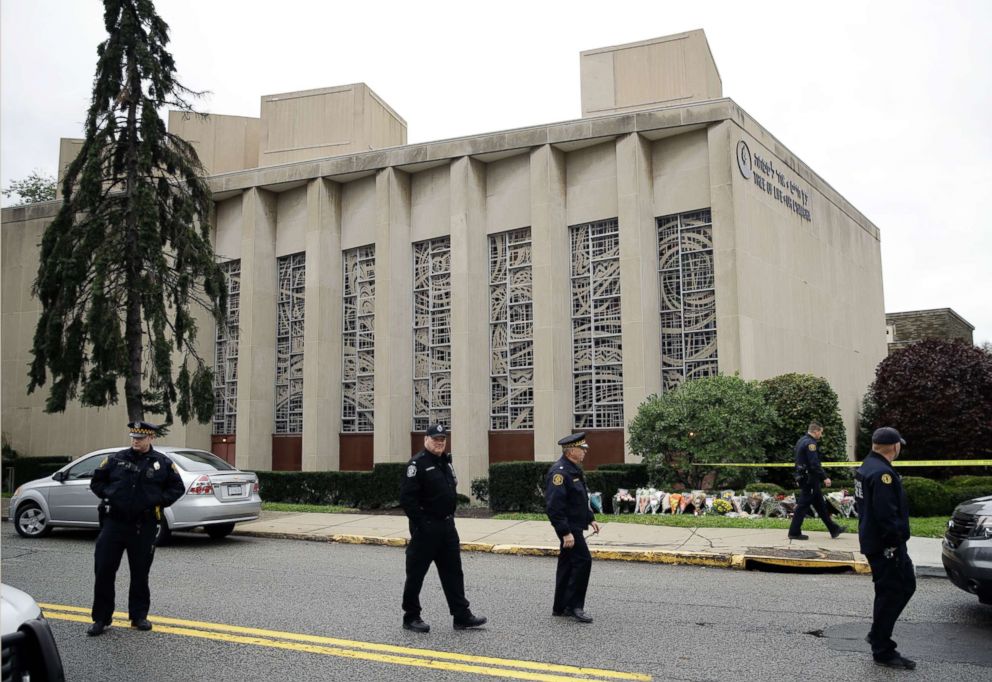How a change in law could lead to more arrests of domestic terrorists
U.S. law doesn't have the same tools to tackle domestic terrorism.
In 2011, when federal counterterrorism officials held meetings about foreign terrorism with various local police departments across the country, they received pushback from police on the ground who wanted to focus on domestic terrorism instead.
"It wasn't uncommon for the police chiefs to raise concerns about violent sovereign citizens or domestic extremist groups, because at that point they were dealing with crime and violence from those groups more often than that of Islamic extremists," said John Cohen, who worked at that time as the principal deputy counterterrorism coordinator at the Department of Homeland Security and acted as the departmental lead on countering violent extremism.
"They were having violent confrontations with anti-government militia extremists, white supremacy propaganda on college campuses, an emergence of hate crimes of people who were targeting minarets and Jewish people and Muslims," Cohen said.
Cohen, who has since left DHS and is now an ABC News contributor, said the local police chiefs would say domestic extremist groups were "more of a pressing problem."
The response from federal counterterrorism officials, according to Cohen, was, "'Well, that's not really something we’re focused on.'"
Some experts say the focus on and prioritization of Islamic extremism by government authorities over the past few years stands in contrast to domestic terrorists and white supremacists who have recently gained prominence through violent attacks.
The mass shootings at two New Zealand mosques this month raised alarms about the global threat posed by white supremacists, while the 2015 Charleston church shooting and the 2018 Pittsburgh synagogue shooting in the U.S. have heightened concerns domestically.

"There is no question post-9/11 that a huge amount of resources appropriately [were] put toward countering Islamic extremism," said Mary McCord, a visiting professor at Georgetown University Law Center and a former acting assistant attorney general for National Security at the Department of Justice
"There's no question that more resources have been put into that than have been put into domestic terrorism. But that doesn’t mean that the domestic terror threat has been ignored," she said.
But some experts say the existing legal frameworks gives prosecutors more tools to deal with foreign Islamic extremists than domestic terrorists, and that there are several reasons acts of domestic terrorism are treated differently under the law.
Legal loopholes
The designated list of terrorist organizations the U.S. references is focused internationally, according to Seamus Hughes, the deputy director of the Program on Extremism at the George Washington University. He said it's that way because it was drawn up by the U.S. State Department, which handles international affairs.
Domestic terrorism investigations don’t "have the same tools in the toolbox" as foreign terrorism investigations, Hughes said, referencing certain constitutional rights American citizens hold and the legal purview allowed in prosecuting those tied to groups on the aforementioned list of terrorist organizations.
The First Amendment, which protects free speech and the right to peaceably assemble in the U.S., means that the "KKK and other white supremacists groups [are] protected. Their violence is not," McCord said.
Another reason more is known about people who help foreign terrorist organizations is a key law that exists in those instances, but does not apply to anyone helping U.S.-based groups that could be viewed as inspiring terror or acts of terror.
Many individuals in the U.S. with ties to ISIS or al-Qaida are charged after they are caught "knowingly provid[ing] material support or resources to a foreign terrorist organization, or attempts or conspires to do so," under this law in the U.S. Code. And while actions related to that crime could apply in many high-profile domestic cases involving white supremacists, there is no equivalent charge for anyone associated with domestic terror groups.
"There's not a domestic counterpart to statutory language that exists pertaining to international terrorism," Cohen said.
Additionally, experts say the way so-called lone wolf terrorists associate themselves informally with terror groups rather than acting as "official" members of those groups has changed, potentially impacting how individuals could be charged.
"Law enforcement is facing a threat that in many respects is very different from the ones it's faced in the past," said Cohen.
"The focus has typically been on people who join a group -- so whether they're neo-Nazis or members of al-Qaida, law enforcement has typically focused its attention on people that join the organization and train in the organization," Cohen said. "Today we face a very different reality. Instead of people joining organizations, we are finding increasingly individuals commit attacks or conduct hate crimes on behalf of an ideology but independent of any group."
McCord is one of a growing number of people who believe the creation of a domestic terrorism statute may be useful in instances where white nationalists and other homegrown extremist groups are involved.
She told ABC News the shooter who attacked the Pittsburgh synagogue in November 2018 could theoretically be considered under such a hypothetical statute, as could the man who allegedly sent unexploded package bombs to prominent Democratic leaders and the CNN headquarters in October 2018.
While a domestic terror statute could possibly increase jail time for would-be attackers, McCord said there is a semantics argument to be made as well: If a violent act was intended to send a message to a certain group of people, calling it "terrorism" acknowledges that terror can strike at the heart of many groups for many reasons -- not just in instances where Islamic extremism is at play.
"'Terrorism' is about sending a much bigger, broader message … the label, I think, is important here," McCord said.
Sending a message from the White House
While Hughes said he thinks the existing legal and investigative frameworks are "relatively adequate," he did say that a signal from the Trump administration that combating domestic terrorism was a priority would help in funding allocations towards those initiatives.
"Some signal from the White House that this is important will have a catalyzing effect on the rest of government," Hughes said, adding that he does not think the White House has shown that interest.
McCord believes it's "time to make sure the resources being put toward the domestic threat are commensurate to the size of the threat."

President Donald Trump suggested in the wake of the New Zealand mosque attacks that he didn’t feel white nationalism was a widespread issue.
When asked if he thought it was a growing threat, Trump responded, "I don't really."
"I think it's a small group of people that have very, very serious problems. It’s certainly a terrible thing," Trump continued on March 15, the day of the New Zealand attack.
McCord pointed to that quote as a sign of what he sees as a disconnect.
"I don't know how you can look at what’s gone on in the U.S. and abroad in the past couple of years and not say it's a problem," McCord said.
Cohen said beyond not considering white nationalism a priority, the language the Trump administration has chosen to use for various issues is also problematic.
"They're using the language and they've adopted some of the themes that are fundamental to the white supremacist ideology so it’s a combination of factors," Cohen said.
While there is no explicit indication the Trump administration is consciously mimicking the language of white supremacists -- and in spite of his condemnation of hate groups -- there have been some instances of the president and his administration using the same language as white supremacist attackers.
For instance, Trump has used the word "invasion" when discussing immigration several times. In the aftermath of the attack on the Tree of Life synagogue in Pittsburgh, investigators discovered the shooter had written online that a Hebrew nonprofit that helped refugees was responsible for "invaders that kill our people."

Some four months later, during remarks in the Oval Office on the same day as the New Zealand terror attacks -- and minutes after sharing his condolences -- the president used the term "invasion" when talking about what he views as a national emergency on the southern border.
"People hate the word 'invasion,' but that’s what it is. It's an 'invasion' of drugs and criminals and people,” Trump said on March 15.
Hearing similar sentiments online has emboldened white supremacists and other domestic extremists, McCord says.
"There is a polarized environment in the country right now that has allowed people to step off the internet and out of the memes into the physical space and commit acts of violence," McCord said.
"It's so easy to find like-minded people [online], it starts looking like things are more acceptable and more widespread than they really are ... They find a lot of support for their ideas that helps them -- at least in my opinion -- that helps them to move into the next place into violence," she said.




